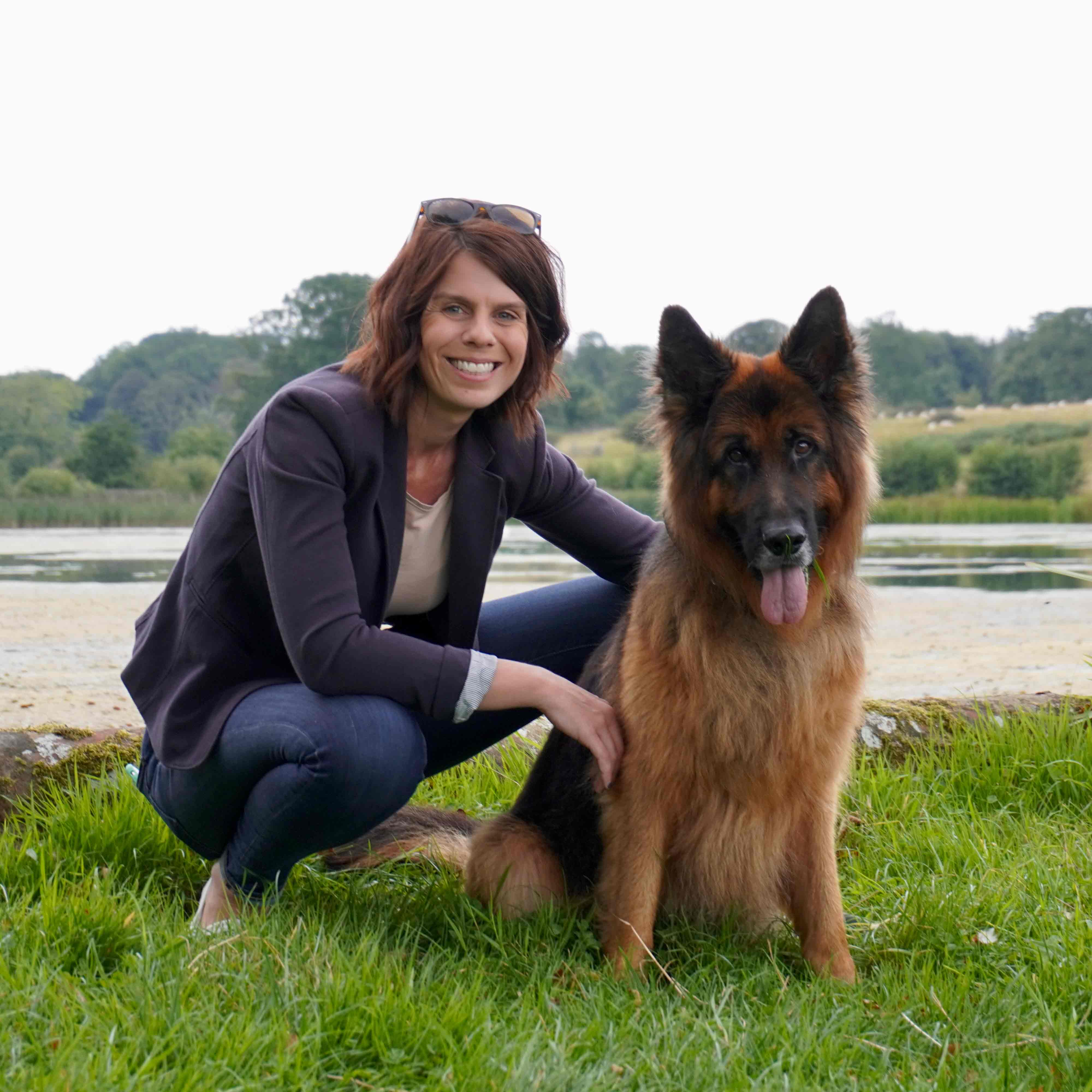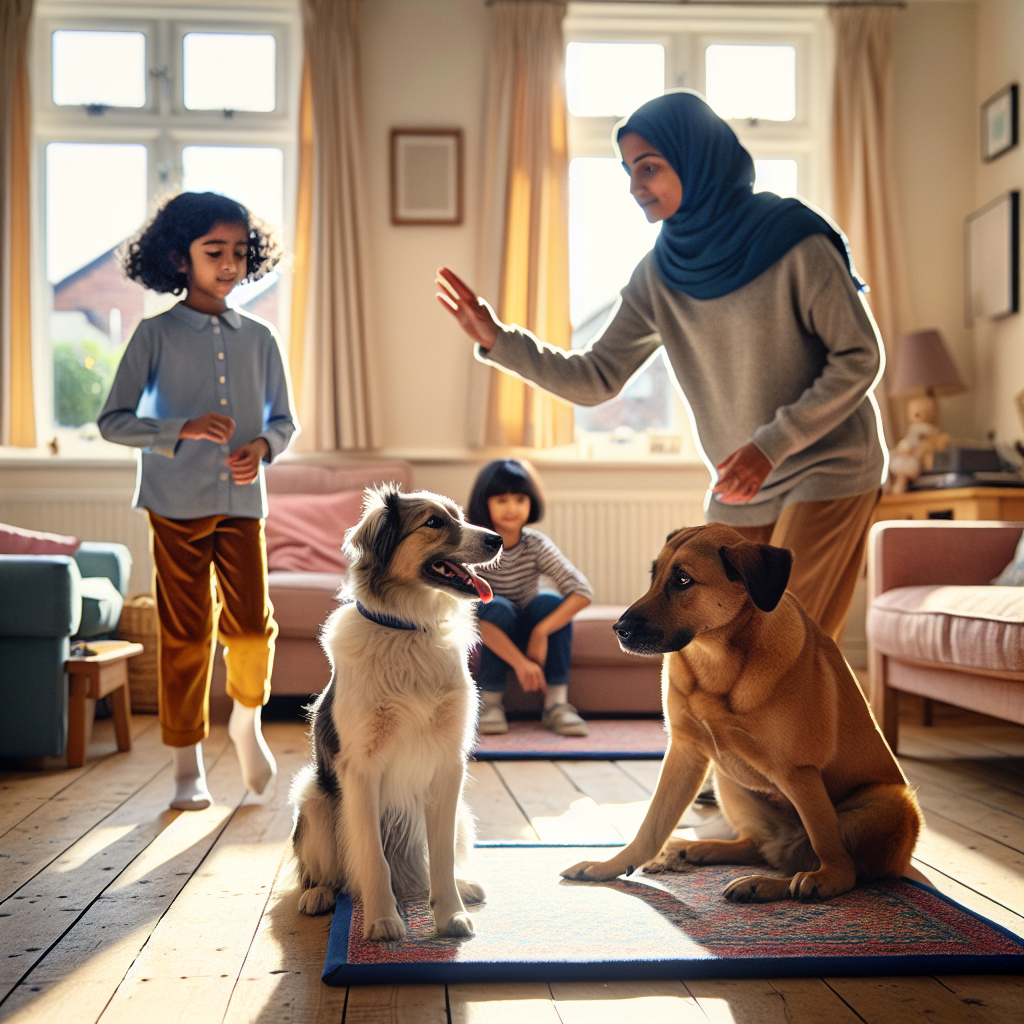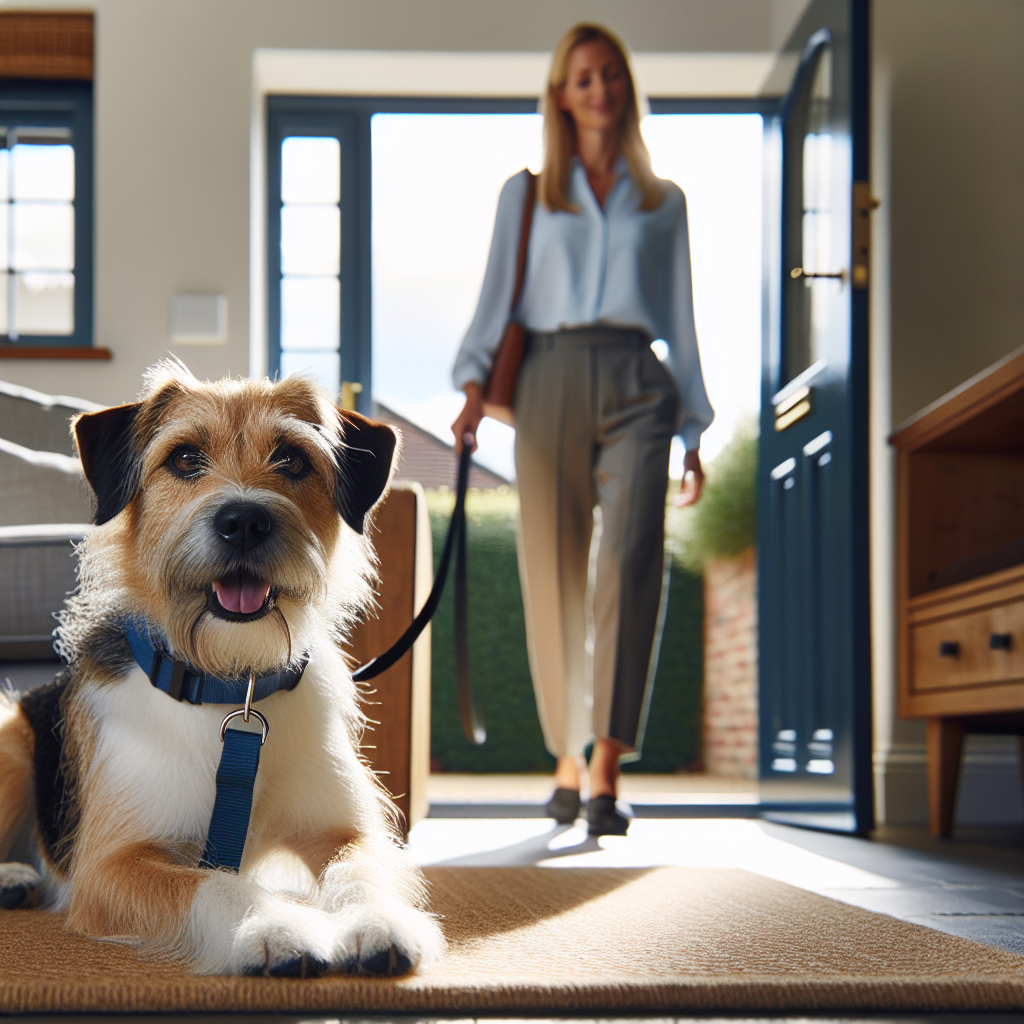Dog Training for Unpredictable Routines

Why Unpredictable Routines Challenge Dogs
Life rarely sits still. Shift work, travel, kids activities, and last minute plans can flip a day on its head. That is where dog training for unpredictable routines becomes essential. Without a clear plan, dogs try to fill the gaps. They bark for attention, pull on the lead, miss toilet times, or panic when left alone. Calm and consistent behaviour is possible even when your schedule is not.
Smart Dog Training specialises in real life results for busy families. Our structured approach shows you how to build clarity, motivation, and accountability that hold up anywhere. Work with a Smart Master Dog Trainer (SMDT) and you will feel supported from day one. The goal is stable behaviour that fits your life, not the other way round.
What Dog Training for Unpredictable Routines Really Means
Dog training for unpredictable routines is the art of creating reliability without relying on the clock. Instead of perfect timing every day, you build skills that turn any moment into a training moment. You teach your dog to settle when asked, focus on you in busy places, and return the first time you call, no matter what is happening.
Smart Dog Training delivers this through a clear system. We set simple rules that your dog can trust. We layer difficulty slowly. We reward good choices and guide poor ones with fair pressure and release. The result is a dog that can switch on and off with you, even when plans change.
The Smart Method For Life Without a Set Schedule
The Smart Method is our proprietary framework for creating calm, confident, and reliable behaviour. It turns dog training for unpredictable routines into a step by step path you can follow.
Clarity
Clear commands and markers cut through noise. Your dog learns exactly what yes means and what try again means. In a changing day, clarity stops confusion from turning into anxiety or pushy behaviour. When plans shift, your dog still understands the rules.
Pressure and Release
Fair guidance creates accountability without conflict. We pair gentle direction with a clear release and reward. Your dog learns how to respond to the lead, how to hold a boundary, and how to settle on cue. This keeps standards consistent when your schedule is not.
Motivation
Rewards drive engagement. We use food, toys, and life rewards like access and freedom to create a dog who wants to work with you. Motivation helps dog training for unpredictable routines stick because reinforcement can be delivered anywhere.
Progression
Skills are layered in simple steps. We start where your dog can succeed, add duration, distance, and distraction, then proof the behaviour in real places. Progression makes reliability feel natural even when days are busy.
Trust
Training should make the bond stronger. Your dog learns that you are consistent and fair. Trust builds confidence under new conditions like guests arriving, sudden travel, or a late night at work.
Core Life Skills That Make Every Day Easier
Some skills matter more when your schedule shifts. Focus on these pillars and dog training for unpredictable routines becomes smooth and predictable for your dog.
Settle on Cue With Place
Teach your dog to go to a bed or mat and relax until released. Place solves mealtime mayhem, visitor excitement, and remote work calls. Start with short calm sessions, then increase duration and distractions. Use a release word so the dog knows when the job is over.
- Reward calm breathing and soft body posture
- Add mild distractions, like you moving around the room
- Proof with door knocks and visitors once the foundation is solid
Reliable Recall
A first time recall keeps your dog safe and gives you freedom. Make returning to you the best option in any setting. Use high value rewards and short, sharp games. Then layer in distance and distractions. Recall is a cornerstone of dog training for unpredictable routines because it gives control even when plans change mid walk.
Loose Lead Walking
Loose lead walking reduces stress on rushed days. Your dog learns to follow your pace, match your turns, and ignore passing distractions. Use pressure and release to teach position, then reward often for attention and slack in the lead.
Crate and Boundary Training
Crate and boundary skills give your dog a safe place to rest and reset. On travel days or when tradespeople are in the house, this keeps your dog calm and out of trouble. Boundaries also prevent door dashing and scavenging when you are distracted.
Build a Flexible Daily Framework
You do not need a perfect schedule. You need simple anchors that make sense to your dog. Dog training for unpredictable routines works when you rely on structure, not the clock.
- Anchor Behaviours: Start and end the day with the same two or three jobs like toilet, place, and a short training rep
- Micro Sessions: Aim for five minute blocks sprinkled through the day
- Movement Windows: Walks can be short but purposeful with focus, heel work, and recall games
- Calm Practice: Daily place or crate time to reset arousal and build impulse control
Micro Sessions That Matter
Short sessions add up. In the kitchen while the kettle boils. In the car park before you exit the car. At the lift while you wait. This is practical dog training for unpredictable routines because it uses the moments you already have.
Reward Economy When Time Is Tight
Save top rewards for high priority behaviours like recall and place. Use everyday rewards like access to the garden or hopping from car to pavement to reinforce attention and calm choices. Your dog learns that working with you makes good things happen even on the go.
Tools and Markers That Keep Clarity
Clear markers remove doubt. Use short words to mark success and release. Pair a consistent lead and training collar with food or toy rewards so feedback is timely and fair. Smart Dog Training selects equipment that supports clarity and comfort while allowing precise guidance. This foundation makes dog training for unpredictable routines dependable under pressure.
A Four Week Progression Plan
Use this plan as a starting point. Adjust the pace to your dog, and remember that consistency beats intensity. Dog training for unpredictable routines improves when you track small wins.
Week 1 Foundation at Home
- Teach markers for yes, no reward, and release
- Begin place for one to two minutes with daily success
- Recall games in the hallway
- Lead pressure and release for position beside you
Week 2 Reliability Indoors
- Extend place to five to ten minutes with you moving around
- Recall from room to room with mild distractions
- Loose lead inside and in the garden
- Start crate naps to build calm
Week 3 Take It Outside
- Place on a portable mat in a park or cafe corner
- Recall on a long line around dogs and people
- Loose lead past real distractions like shops and buses
- Boundary training at doors and kerbs
Week 4 Proof Under Surprise
- Practice place when guests arrive or deliveries occur
- Recall from play or sniffing
- Loose lead through a busy route at rush hour
- Calm crate time during a noisy household period
Handling Common Curveballs
Curveballs will happen. The Smart Method helps you prepare so dog training for unpredictable routines stays on track.
Shift Work and Sleep Changes
- Use a quiet dark crate to protect sleep for both you and your dog
- Anchor a short training block after wake up to reset the day
- Plan one focused walk with high value training rather than several low value strolls
Travel Days and Hotel Stays
- Pack a familiar mat and chew to anchor calm
- Practice place and settle in the room before exploring
- Use a long line outdoors until recall is proven in the new area
Kids Activities and Visitors
- Place during homework, meals, and when friends come over
- Teach polite greetings with a sit and release instead of jumping
- Reward quiet choices when excitement rises
Weather Interruptions
- Swap long walks for home training games that build focus
- Use food puzzles only after exercise and calm work
- Practice heel, recall, and place indoors to keep standards high
Behaviour Issues That Flare With Change
Some behaviours spike when structure slips. Smart Dog Training programmes address the root cause and rebuild reliability.
Barking, Whining, and Separation Stress
Lack of clarity and predictability can drive noise and panic. We reinforce calm on a boundary, teach independence through crate and place, and keep exits low key. Dog training for unpredictable routines reduces noise by giving your dog a clear job to do.
Overexcitement and Jumping
Excited greetings often come from unclear rules. Teach a sit for attention and release to greet when calm. Reward four paws on the floor. Use pressure and release to guide body control.
Destructive Chewing and Stealing
Idle time can equal trouble. Provide structured chew sessions after exercise and training. Use boundaries during busy hours. Reward trading and leave it so your dog learns to make the right choice even when you are distracted.
Measuring Progress In Real Life
Progress is proofed in daily moments. Dog training for unpredictable routines improves when you track simple metrics and celebrate small wins.
- Set three priority behaviours such as recall, place, and loose lead
- Write criteria for success for each behaviour
- Log five short sessions per week and one real world test per behaviour
- Reduce rewards slowly once behaviour is strong under distraction
When To Bring In a Professional
If your dog is anxious, reactive, or you feel stuck, bring in expert help. A Smart Master Dog Trainer (SMDT) will assess your dog, your environment, and your routine. You will receive a tailored plan with clear steps, equipment guidance, and hands on coaching. That is how Smart Dog Training turns dog training for unpredictable routines into calm behaviour that lasts.
Ready to turn your dog’s behaviour around? Book a Free Assessment and connect with a certified Smart Master Dog Trainer - available across the UK.
FAQs
What is the first step for dog training for unpredictable routines?
Start with clarity. Choose three core behaviours like recall, place, and loose lead. Mark and reward small wins. Keep sessions short and frequent. This builds a base you can use anywhere.
Can I still make progress if I only have ten minutes a day?
Yes. Micro sessions are powerful when the plan is clear. Two or three five minute blocks focused on one skill will outperform a single long session done once a week.
How do I keep my dog calm when guests arrive without warning?
Rehearse place before you need it. Reward calm, then add the door knock and short conversations. Release your dog only when calm. Over time, the routine becomes automatic even with surprise visitors.
What equipment should I use to maintain clarity?
Use a consistent lead, a well fitted training collar, and clear verbal markers. Pair fair guidance with rewards. Smart Dog Training will advise on the exact setup during your programme.
How do I proof recall when my dog is distracted?
Build in stages. Start at home, add distance, then add distractions with a long line. Pay big for fast returns. Avoid calling if you know your dog will not come. Set up your dog to win and increase difficulty slowly.
When should I seek professional help?
If your dog shows anxiety, reactivity, or biting, or if progress stalls, book a session with an SMDT. Professional support speeds results and ensures safety for everyone.
Conclusion
Unpredictable days do not have to mean unpredictable behaviour. With the Smart Method, you can build skills that hold up anywhere. Focus on clarity, fair guidance, strong motivation, and steady progression. Use simple daily anchors, short sessions, and real world proofing. That is the path to calm, reliable behaviour with dog training for unpredictable routines.
Your dog deserves training that truly works. With certified Smart Master Dog Trainers (SMDTs) nationwide, you'll get proven results backed by the UK's most trusted dog training network. Find a Trainer Near You



